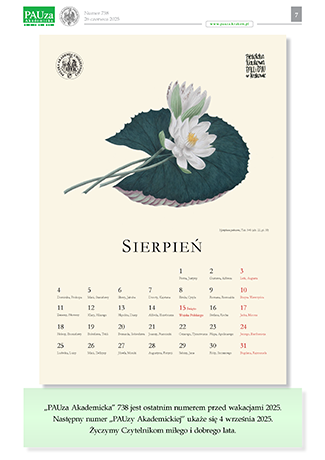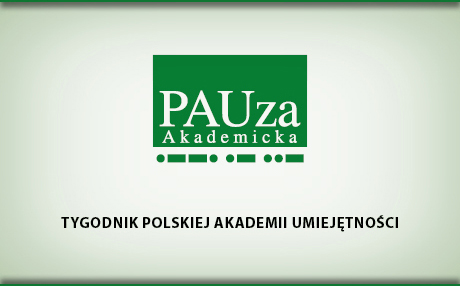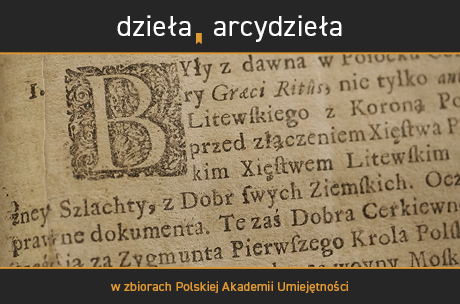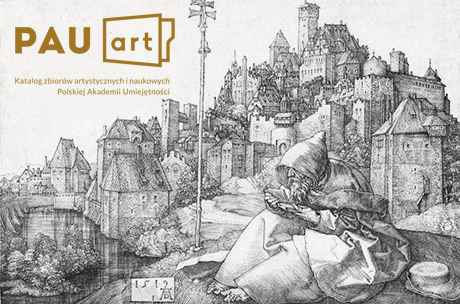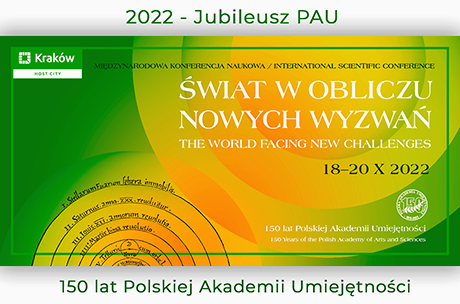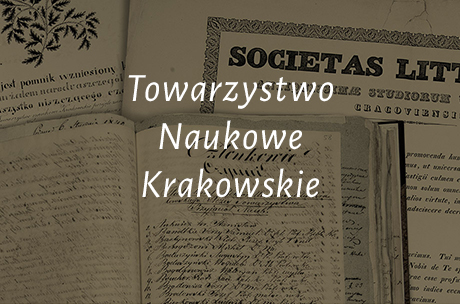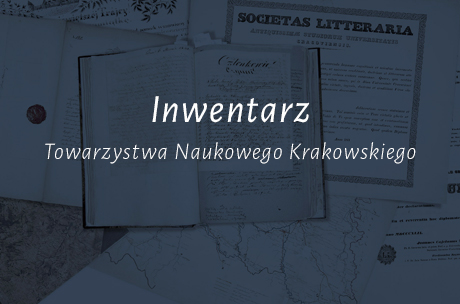Subscription and sales
Subscription and sales
Sales information
Contact
Polska Akademia Umiejętności
Wydawnictwo
ul. Sławkowska 17
31-016 Kraków, Poland
ph: +48 12 424-02-12
e-mail: This email address is being protected from spambots. You need JavaScript enabled to view it.
working hours: Monday – Friday, 9.00 a.m. to 3.30 p.m
Books and journals can be purchased:
1. In the PAU offices (ul. Sławkowska 17, 31-016 Kraków)
2. By mail order (from Poland or abroad)
Orders may be placed:
- by e-mail (preferred)
- by phone
- by post
List of published volumes and price list
Author’s licence agreement template
Author’s licence agreement template
Please send the filled-in and signed agreement
a) on paper, by post, to:
Polska Akademia Umiejętności – Wydawnictwo
ul. Sławkowska 17
31-016 Kraków, Poland
b) as a scanned PDF file, by e-mail, to:
This email address is being protected from spambots. You need JavaScript enabled to view it.
Ethical publishing practices
Ethical publishing practices
The editors of Folia Historiae Artium do their best to ensure that articles published in the journal conform to the standards of scholarly integrity, in particular preventing the infringement of this integrity by plagiarism, ghostwriting or ghost authorship (honorary authorship). It is considered a case of ghostwriting if a name of a person who substantially contributed to the paper is not recognised in the paper (whether as one of the authors or in acknowledgements). It is considered a guest authorship if a person, whose contribution to the paper was negligible or none at all, is indicated as an author or co-author of the paper.
If a case of plagiarism, ghostwriting or ghost authorship is revealed, the editors will decline to publish the paper, and if such a case is revealed only after the paper has been published, an appropriate declaration denouncing the fact will be published in the subsequent issue of the journal.
In any case, the fact of the infringement of the standards of scholarly integrity will be reported to the employers/supervisors of the author(s).
The journal is published from the funds provided by the Lanckoronski Foundation (http://fundacjalanckoronskich.org/en/). Authors do not have to cover publication expenses (there are no Article Processing Charges; APC), but are solely responsible for providing images and securing the rights for their reproduction in the journal.
Contact
Contact
Address of the Editorial Board:
Instytut Historii Sztuki UJ [Institute of Art History of the Jagiellonian University]
ul. Grodzka 53, PL31-001 Kraków, Poland
E-mail: This email address is being protected from spambots. You need JavaScript enabled to view it.
Review procedure
Review procedure
Folia Historiae Artium. New Series is a peer-reviewed scholarly journal. An overall formal standing of every submitted paper is first assessed by the editorial board who also determine its suitability for the journal, and if the paper passes this initial review, it is sent to two independent reviewers, experts in a field, making sure that the criteria of:
- anonymity (the so-called double-blind peer-review procedure)
- absence of conflict of interest between the author and reviewers
have been met.
It is considered a conflict of interest if the author and referee are in a supervisor-employee relationship, have a personal relationship (e.g. family, formal relationship, conflict) and had collaborated during two years before the review is made. The general principle that has been adopted in the review procedure is that reviewers cannot be employed in the same institution as the author of the submitted paper.
Before choosing the reviewer, the editors make sure that none of the above-mentioned forms of the conflict of interest exist between the author of the paper and the reviewer, using publicly available sources: official websites of scholarly institutions, personal websites of scholars and institutions they are affiliated with, websites of research projects and grants, etc.
Reviews are made in written form. Reviewers assess papers according to the following criteria:
- originality of the problem discussed
- pertinence of the adopted methodology
- results (to what degree the author has accomplished the planned task)
- choice of illustrations
- logical construction of the paper/lucidity and intelligibility of the argument; language and style
In case of starkly differing reviews, the editors may submit a paper for review of a third reader.
Based on reviews, a paper may be: accepted for publication without change; accepted for publication on the condition that amendments indicated by reviewers are made; rejected. Reviews and decision of the editorial board are made known to the author in writing within three months from the initial submission.







